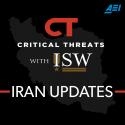Russian Offensive Campaign Assessment, September 12, 2023
Sep 12, 2023 - ISW Press
Russian insider sources claimed that the Kremlin’s inner circle is again actively disagreeing about the necessity of and preparations for a second wave of reserve mobilization ahead of the semi-annual fall conscription cycle, which starts on October 1. A Russian Telegram channel with alleged connections to Russian security sources claimed that select Russian officials are “seriously” preparing for a second wave of reserve mobilization and are hoping to conduct another reserve mobilization wave in the fall. It is important to distinguish between Russia’s normal semi-annual conscription callup, a large-scale reserve mobilization like the one that brought more than 300,000 reservists into the Russian armed forces in Fall 2022, crypto-mobilizations that bring reservists into the force at lower numbers over a long period of time, and various efforts to encourage or coerce Russians to sign ostensibly voluntary contracts with the Russian military. The channel claimed that Russian officials want to mobilize between 170,000 to 175,000 reservists and move the fall conscription date from October 1 to November 1 to accommodate a reserve mobilization processes, while simultaneously conducting “contract mobilization” to recruit an additional 130,000 personnel for contract service using coercive measures. The channel claimed that a powerful group of “siloviki hawks” is also proposing stricter reserve mobilization measures such as restricting certain individuals from obtaining mobilization deferrals, which has sparked major disagreements with officials in the Russian Presidential Administration. The channel claimed that the Presidential Administration fears a response to such measures from other Russian officials and broader Russian society.










